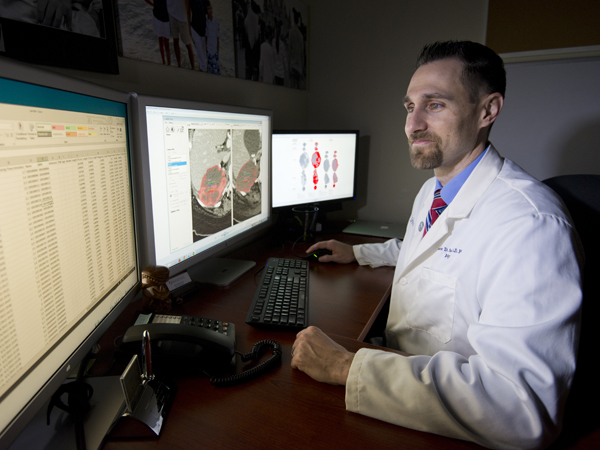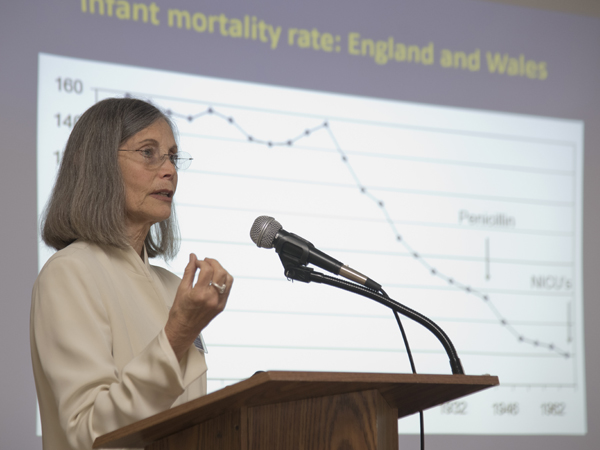|
Dr. Andrew Smith foresees a day when doctors can look at images of some metastatic melanoma tumors and better show whether that patient is benefiting from a particular treatment or not. Smith and his colleagues saw their paper outlining the process published by the American Journal of Roentgenology in September, just a few weeks after former President Jimmy Carter announced that he is being treated for metastatic melanoma, or skin cancer that has spread to other places in his body. Smith, a researcher and associate professor of radiology at the University of Mississippi Medical Center, said computed tomography (CT) scans can help show if angiogenesis inhibitors, drugs that can destroy blood vessel growth to tumors, are working. The drugs used in his study are not the same ones Carter is receiving. He hopes the findings will add another tool to a limited toolbox for metastatic melanoma. One day the scans may give doctors the ability to predict metastatic disease response after only one cycle of therapy. If the tumor shows a favorable response, this is encouraging to patients and their doctors. If the tumor shows an unfavorable response, doctors and patients may switch to a different therapy. Long term, that could save the patient the cost of the drug, side effects from it and put them in a therapy that helps slow or destroy their cancer. Smith said research doctors may also use this information to plan clinical trials and use the tool to bring certain drugs to market faster and at less cost. "As we enter the age of personalized medicine, the ability and need to assess a cancer patient's individual response to his treatment becomes critical," said Dr. Timothy McCowan, professor and head of the Radiology Department. "Dr. Smith's research is on the forefront of providing this information."
|






















